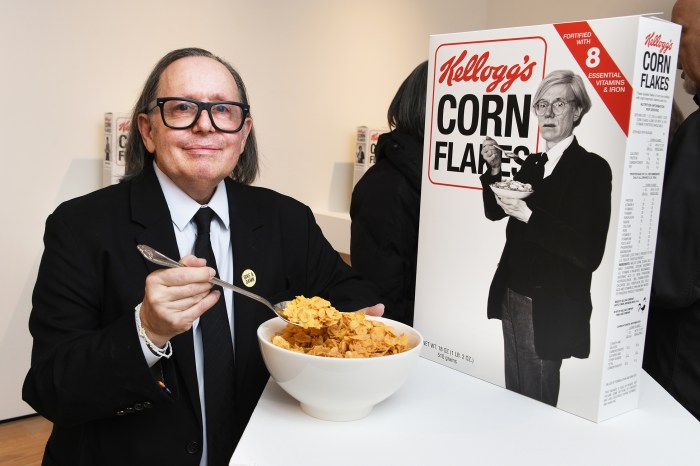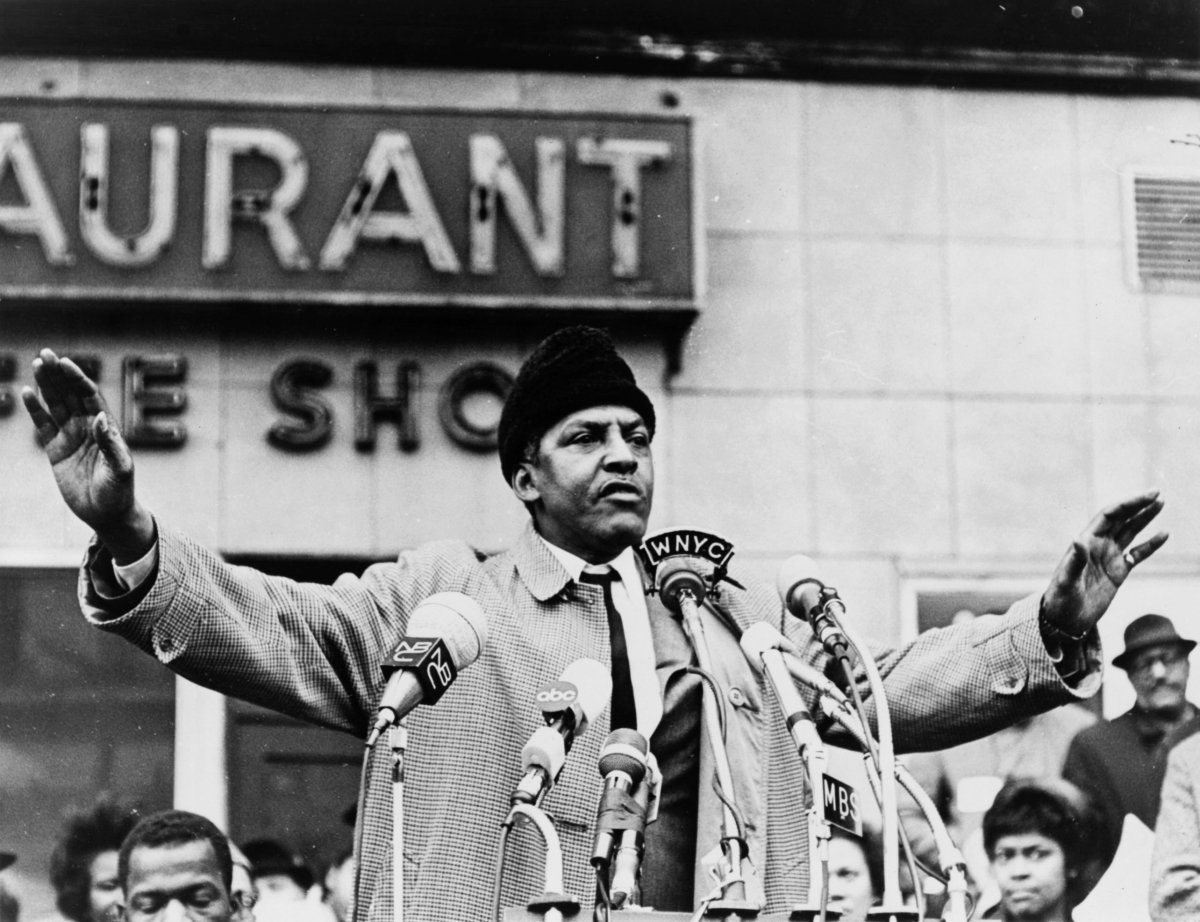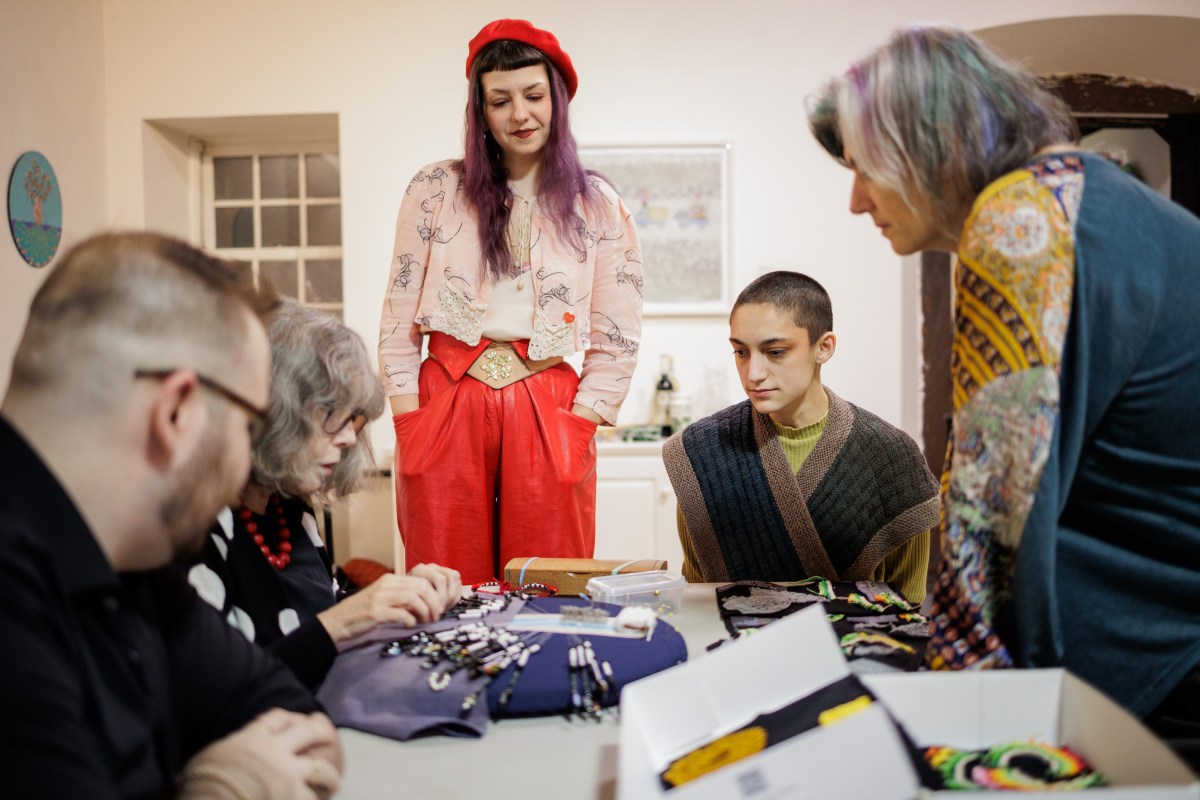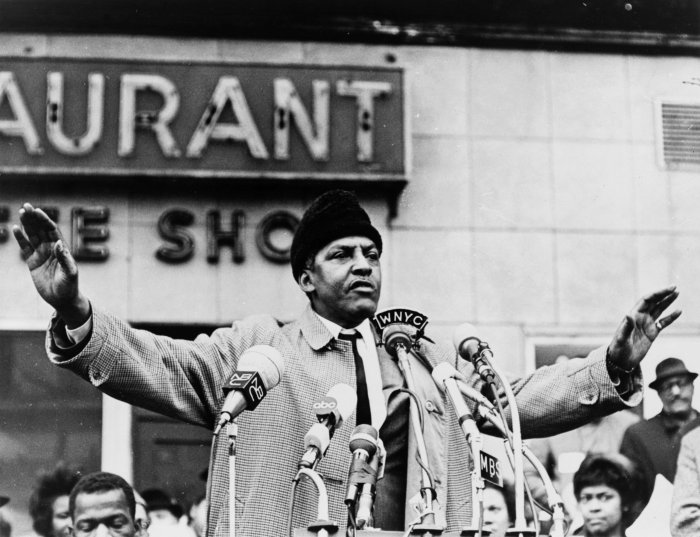By David Todd
Martin Duberman, as playwright, documents liberation battling repression
Recently, venerable folksinger Pete Seeger performed “Take It From Dr. King” on David Letterman’s show, surrounded by a group of youthful backups. The audience was at first respectful, perhaps charmed by Seeger’s patient, sing-songy manner.
But then an interesting thing happened. The audience seemed to become more affected by the simple music and the beatific message: “Don’t say it can’t be done, the battle’s just begun.” They sang and clapped, smiled and thought.
It was as if this group of tourists, contingents from Midwestern high schools, and refugee day traders — who else goes to “Late Show”? — suddenly realized, “Hey, this person isn’t talking about some quaint past; this guy is telling us to wake up right now.” In just a few short minutes, Seeger took the audience back to “Alabama, 1955,” and then he left them there to make their own way forward.
Martin Duberman — playwright and scholar — is a similar voice from the pre-Baby Boom past. Just as Seeger’s song was a tour through protest history, so is Duberman’s new anthology of plays, “Radical Acts,” just released by The New Press.
In this set of four pieces, dating back to 1963, Duberman offers an epic look at anarchist Emma Goldman in “Mother Earth,” a wooly hang with the Beats in “Visions of Kerouac,” and a fear-ride through the gay-panicked late ’50s in “Posing Naked.” With “In White America,” he provides a panoramic view of the race issue in this country, employing a documentary style with dialogue drawn exclusively from historical texts.
It’s not easy to encapsulate Duberman’s career — trained as an historian at Harvard, now a distinguished professor emeritus at CUNY, a Drama Desk-winner, a Pulitzer Prize runner-up, and author of more than 20 books — but through it all runs an interest in breaking social convention, with Duberman connecting to outsiders of various kinds through the lens of his own experience growing up in a dry, homophobic America.
DAVID TODD: “In White America” is quite faithful to its sources, whereas the later pieces take greater liberties in re-imagining their subjects. Can you talk about your style as it evolved over these plays?
MARTIN DUBERMAN: Well, I was about to say that with each new play I more and more invented, but I can’t really say that because I can’t track the chronology. When I wrote “In White America,” I was much more committed to the so-called niceties of academia than I subsequently became. And therefore, since “In White America” consists of primary documents, I was insistent that nothing be changed from the original document beyond occasionally omitting a phrase or adding an “and.” And therefore, I got into some trouble with one of the actors, but that we can leave for later. [Laughs.]
Actually, at the bottom of all this is a very large question, namely, what is the real difference between so-called fiction and so-called nonfiction, which these days a lot of writers grapple with, and frequently cross the line. And they do so with a lot less angst than I had back when I wrote “In White America.” [Laughs.]
I guess a lot of these writers are not academics and so aren’t trained in so-called objectivity. But we’ve learned a lot about objectivity and its limits. Objectivity, in the 40-some years since I wrote “In White America,” is no longer considered something real, tangible, something that can exist without taint from the subjectivity of the observer.
If objectivity was valued for its accountability, is there a different kind of value that you saw in subjectivity as you went into that direction?
Well, it isn’t only the value, but I do think it’s valuable. It’s also the inevitability of subjectivity. You can’t paint an historical portrait, whether of an individual or an epic, without who you are as a human being significantly coloring that portrait, even though you’re doing your damnedest not to.
The primary sources are almost always, with a very few exceptions, far more limited than you would like. I’ve also written a number of biographies, and in most cases you simply can’t trace the individual’s emotional state or his or her interaction with friends and family, simply because they’ve left no record of their feelings at a given point in time. So a form of invention inevitably enters.
In addition to being rooted in history, the majority of these plays are character-driven, focusing on a single figure.
What is it that draws you to these particular subjects?
Well, I think my choice of subjects is a reflection of my politics. That much is probably obvious. The one possible exception is [gay American literary critic] Newton Arvin [in “Posing Naked”], because he was not political the way Emma Goldman was or some of the Beats were. But there it would be my gay politics.
I chose him because he represented a particular time period in which I was alive and the kind of repression that was widespread during those years. And I also felt… you know, he’s been widely denounced for what was, at bottom, a betrayal of his friends. And that is, to my mind as, well, inexcusable.
However, if you understand something about the period and how it distorted the personalities of people, they learned — almost all of us learned — to internalize a certain amount of self-hate and shame. I mean, we were these disordered folks; some would call it diseased, some would call it sinful, but in any case we in no way could be regarded as normal. And when you hear that on all sides when you’re growing up, it certainly distorts your self-image, creates depression and anxiety and all kinds of lasting symptoms. So I felt some sympathy toward Arvin, despite [his] betraying his friends.
What about Jack Kerouac? To me, he’s a little different than the others.
For me, the center of that play is the relationship between Kerouac and [Neal] Cassady, with its homoerotic overtones. I was trying to say something about the cost of growing up macho in this country, that a figure like Kerouac, not only with his Catholic background but also with his manly background, he had to more or less repress a lot of emotion, to the point where he was out of touch with his own feelings. And I’m convinced, and some of his biographers are also convinced, that Kerouac was deeply in love with Cassady, and that he simply didn’t know how to come to terms with that.
It’s an interesting inversion, because with Kerouac, his social scene was open-minded and he was kind of self-suppressing, as opposed to Arvin, where the culture was suppressing him in a coercive way.
Oh, I’ve never thought of it quite that way before. But yeah, I mean, somebody like [Allen] Ginsberg, especially given the time period, was remarkably open, he was one of the very few people in the country who was.
What drew you to Emma Goldman, the subject of “Mother Earth”?
Oh, I’ve been a fan of Emma Goldman’s forever. I read her autobiography, “Living My Life,” way back, decades and decades ago. And always in the back of my mind I wanted to do something about that whole period, theatrically. I did end up, just a few years ago, writing a novel about the [1886] Haymarket riots in Chicago, which inspired Emma, to become… I just realized my dog Emma is sitting here at my feet, named for Emma Goldman, not for Jane Austen’s character, though I like that Emma, too. [Laughs.] But I’ve always wanted to write about [Goldman], and I think she was just extraordinarily brave and ahead of her time, just remarkably outspoken. And it’s a miracle she wasn’t killed, either by the state or in some demonstration.
Like “Mother Earth,” all the other plays are set in America. Do you think there’s some common point of view on the country that they convey?
Oh yeah, I think so. I don’t quite know how to formulate it, but it has to do with my admiration for those in any given period of time who rebel against the pieties of that particular era, and what the going pieties are will of course vary from era to era. But I’ve always been very drawn to outsiders, doubtless a reflection of the fact that I grew up, you know, feeling like an outsider as a closeted gay man. So, I think that’s the essence of it.
Martin Duberman appears in conversation with writer Sarah Schulman on Wednesday, October 15. Reception at 6 p.m. followed by a discussion at 7. $10. The LGBT Community Center, 208 W. 13th St. For more information, visit gaycenter.org.






































